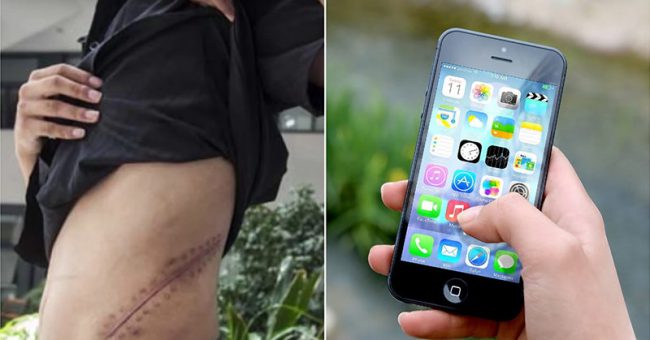Teen Who Sold A Kidney For An iPhone Is Now Bedridden For Life
A decade ago a 17-year-old boy sold his kidneys on the black market in China to raise money to buy a new Apple device.
The decision has left him bedridden for life, physically, mentally and emotionally as well as financially.
Being a teenager in the modern age can, of course, seem like a difficult emotional assault. Rapid physical development is often accompanied by enormous emotional changes, and this can make teenagers excited, confused, uncomfortable, stressed and difficult to be accepted by others. Surviving the teenage years can be a challenge for both teens and their parents. While today the most common problems that teenagers face are those of a few decades ago – finding a career path and starting a family – young people today face unique problems from their time. Society and technology have come a long way over the years, but teenage years can remain confusing.
A bad decision during his youth left him bedridden for the rest of his life. In 2011, Wang Shangkun, who at that time was 17 years old, didn’t have the money for an iPad 2 or iPhone 4 but still wanted them. A few years later, Wang suffered organ failure and could never walk again. In his youth he had a bad decision: His kidney bought a new Apple product. He has learned an important lesson the hard way.
One day, over the internet, he received a message in an online chat room of an organ collector from a man who said that he could get twenty thousand yuan for his kidney. Wang underwent an illegal operation performed by two doctors at a local hospital. His kidney was removed and sold to an unknown person. Wang received $3,500 for the kidney to pay for his new electronic devices.
He came home with his laptop and an Apple phone. When he returned home, his mother became suspicious and forced him to confess his actions.
I asked him where the money came from. “Mum, I sold my kidney. I couldn’t keep it to myself, he told us. When he told me that I felt the sky was falling on our family.”
A few months after the operation, Wang developed infections on other kidney due to the unhygienic state of the operation and improper postoperative care. In his mid-twenties, he was tied to a bed and given daily dialysis to remove toxins from his blood because his kidney was unable to filter them out. Doctors said he needed a kidney transplant, which he did.
Following the operation, nine people were arrested and five charged, including the surgeon and the person who rented the operating room and searched an online chat room for a donor.
However, China has a huge shortage of organs, at just over half, and one of the lowest percentages of organ donations in the world.
Many people regard the human body as sacred, and it is often buried entirely in order to pay them respect as ancestors.
Prisoners have long been used as donors to meet the demand for organ donation. In 2015, China committed itself to ending this practice, which has been criticized by the international public. Critics say it is too easy for people with connections to abuse the system and bypass the waiting list. As an alternative, China has established a national organ bank responsible for finding and distributing suitable organs to those who need them.
In 2016, the Chinese government said it had performed tens of thousands of organ transplants. However, independent reports from the International Coalition to End Transplant Abuse in China claim that this figure is too low. The group estimates that there are only 61 out of a hundred thousand transplants worldwide.
The black market is thriving and there is a high demand for human kidneys, which can fetch up to $250,000. Illegal organ trafficking is spreading rapidly. People are struggling with debt, and some are themselves victims working on the black market.
The best solution to this scarcity problem is to persuade the public to donate organs. This would reduce demand for organs on the black market and put an end to this dangerous trade. For those who need organs, it is the only solution to survive, but most patients die waiting to get one. The story of Wang proves that this can cost your life.
It’s too late for the teenager who sold his kidney. His life has changed forever and he is now at the mercy of a malfunctioning system.










